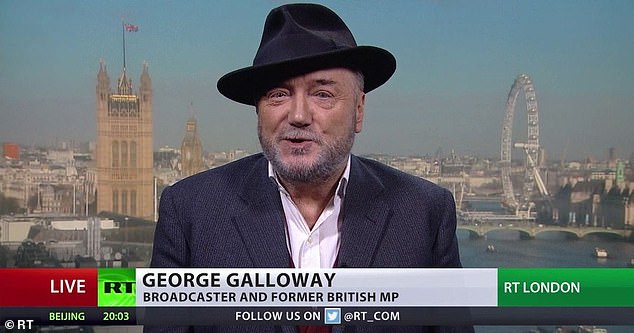A few years ago, when I was working on the Bernie Sanders campaign, one of our volunteers came to me with an interesting proposal. It turned out that he worked in London for Russia Today (now known as RT). He suggested that I or another campaign spokesperson might make an appearance on one of their shows. It would be good publicity for the campaign, he said.
I politely declined and explained why. RT is a propaganda arm of the Russian state and I wanted nothing to do with it. Nor did I want the Sanders campaign to be associated with it.
This week Ofcom banned RT from broadcasting in the UK. European Commission President Ursula von der Leyen did the same across the EU, also banning Sputnik, another Russian channel.
I think those decisions were the wrong ones and will have — are already having — disastrous consequences. Especially for the Russian people.
The ban on RT was quickly denounced by the Russian government, but welcomed by many in Europe. RT has no particular “right” to broadcast its lies to the British and European publics, especially not at a time when Russian artillery are pounding Ukrainian cities into rubble. My initial reaction to the news was to think “good riddance” and well done to Ofcom and the European Commission. But I have changed my mind.
The European Federation of Journalists (EFJ) came out strongly against the decision to ban RT.
“The total closure of a media outlet does not seem to me to be the best way to combat disinformation or propaganda,” said EFJ General Secretary Ricardo Gutiérrez. “In our opinion, it is always better to counteract the disinformation of propagandist or allegedly propagandist media by exposing their factual errors or bad journalism, by demonstrating their lack of financial or operational independence, by highlighting their loyalty to government interests and their disregard for the public interest.”
It’s not entirely clear what Ofcom and the European Commission thought they would achieve by banning RT or Sputnik. Blocking RT’s broadcasts doesn’t put an end to Russian state propaganda. As we know, Russian intelligence services work overtime to influence public opinion and even to change the results of elections — with some measure of success. Of all the means the Russian state has at its disposal to influence public opinion in the West, RT was perhaps the least effective. I don’t know anyone who watches it, and I doubt it has any effect at all about how people think.
Still, having said all that, if there were no cost to the banning decision, then why not? If it makes us feel better about ourselves, like hanging a Ukrainian flag in our windows, that’s fine.
But there is a cost and a very serious one to this decision, and that’s why I oppose it.
The Russian state will retaliate by trying to ban access to Western broadcasts, including those of the BBC. They already banned the German broadcaster Deutsche Welle (DW).
As we know from the many years of the Cold War, and during the Second World War as well, the BBC broadcasts were like oxygen to people living under dictatorial regimes. That is true today as well.
Though RT was watched by hardly anyone, the BBC, DW and other Western broadcasters have large audiences in Russia. They are trusted to tell the truth.
If we’re making a trade — we shut down RT, they shut down the BBC — we do not come out ahead. And the Russian people, who are hungry for the truth, are the real losers.
This article appears in today’s issue of Solidarity.
